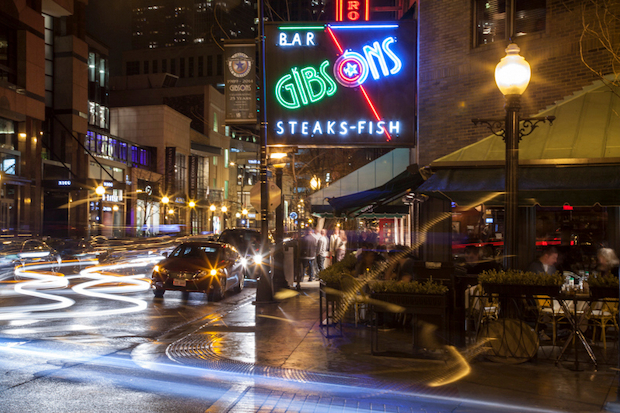
Oct 31, 2017
David Matthews | DNAinfo Chicago | October 30th, 2017
DOWNTOWN — Gibsons Bar & Steakhouse grossed nearly $25 million last year, tops among all Chicago restaurants, according to a new study.
The venerable Rush Street steakhouse is one of nine Chicago restaurants on Restaurant Business’ list of the top 100 independent restaurants in the country.
That’s down from 10 in 2015, when the Greek Islands restaurant at 200 S. Halsted St. clocked in at No. 99 in the country with $12.2 million in gross sales.
Gibsons, at 1028 N. Rush St., has led all Chicago restaurants in gross sales since at least 2014, according to the report. Primehouse, the steakhouse in the James Hotel at 616 N. Rush, led all Chicago restaurants that made the high-grossing list, with an average check of $98 last year.
Quartino Ristorante, 626 N. State St., led all Chicago restaurants on the list with nearly 440,000 meals served last year.
Restaurant Business said it calculated its totals using surveys or estimates based on “public information, similar concepts and other factors.”
The rankings apply only to non-chain restaurants with no more than five locations.
Here’s the list:
•No. 1 (10 nationally): Gibsons Bar & Steakhouse, 1028 N. Rush St.
Gross sales: $24.7 million
Average check: $75
Meals served: 363,301
•No. 2 (20): Joe’s Seafood, Prime Steak & Stone Crab, 60 E. Grand Ave.
Gross sales: $21.2 million (estimate)
Average check: $80 (estimate)
Meals served: 265,000
CONTINUE READING
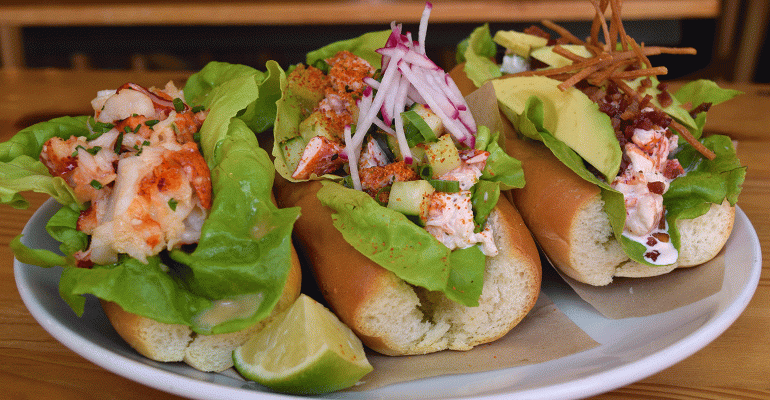
Oct 23, 2017
Lisa Jennings | Restaurant Hospitality | October 19, 2017
Chicago pizzeria owner Simon Mikhail had been working with UberEats for about a year when the third-party delivery service approached him last year with a proposition.
UberEats users in his neighborhood had been searching for “chicken” through the delivery service’s app, they told him, but there wasn’t much available. Was Mikhail interested in filling that void?
“I said, ‘I can do fried chicken. I have a fryer,’” said Mikhail, owner of Si-Pie Pizzeria.
But rather than adding fried chicken his pizzeria’s menu, UberEats worked with Mikhail to create a new concept, dubbed Si’s Chicken Kitchen, which was available only through the app as a virtual restaurant without any brick-and-mortar presence.
The virtual Si’s Chicken Kitchen has been open for about a year and averages about $1,000 per week in sales of fried chicken, chicken tenders and chicken pizza — all made in the pizzeria’s kitchen. Sales have already surpassed delivery sales of the original pizza concept.
“I’m selling more fried chicken than pizza for delivery,” Mikhail said.
With a second pizzeria location in the works, Mikhail also plans to do separate virtual concepts from that kitchen too, including a possible delivery-only burger restaurant.
The notion of virtual restaurants isn’t new. As delivery has gained momentum, a growing number of operators have launched delivery-only concepts, and not just with UberEats.
But the fact that UberEats is looking to use its data to identify locations where such virtual concepts would work brings a new weapon to the competitive delivery battlefield.
CONTINUE READING
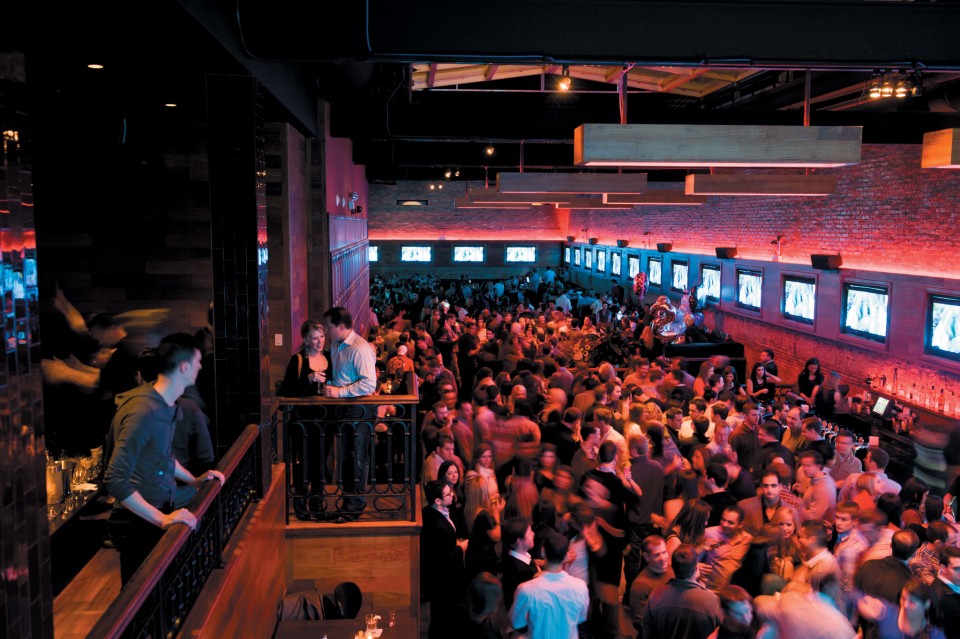
Oct 13, 2017
David Matthews and Tanveer Ali | DNAinfo | October 11, 2017
RIVER NORTH — It could be last call for more alcohol in River North.
The City Council voted Wednesday to prohibit new liquor licenses in much of the neighborhood long known for its nightlife.
Citing an “over-concentration” of bars in the area, the new law introduced by 42nd Ward Ald. Brendan Reilly seeks to prohibit new watering holes in wide swaths of River North.
The ordinance only applies to new bars that make most of their money off booze, not other businesses such as hotels, restaurants or music venues that also sell drinks. Existing River North bars will not be affected.
Reilly, who didn’t return messages seeking comment, for years has told neighbors he frowns on granting tavern licenses to new bars that he said attract drunken mischief to River North.
Lilia Chacon, a spokeswoman for the city’s Department of Business Affairs and Consumer Protection, said there already are moratoriums in the ward with regard to bars, liquor stores and late-night clubs. Any liquor licenses recently granted in the ward have gone to restaurants and other businesses with incidental drink sales, she said.
A new ordinance would make those restrictions more permanent in River North.
“There is a delicate balance between residential, business, hospitality and tourism objectives in our very dynamic neighborhood,” Mike Riordan, president of the River North Residents Association, said in an email. “We work extremely hard to advocate for quality of life issues and to collaborate with business owners so that we all thrive. ”
CONTINUE READING
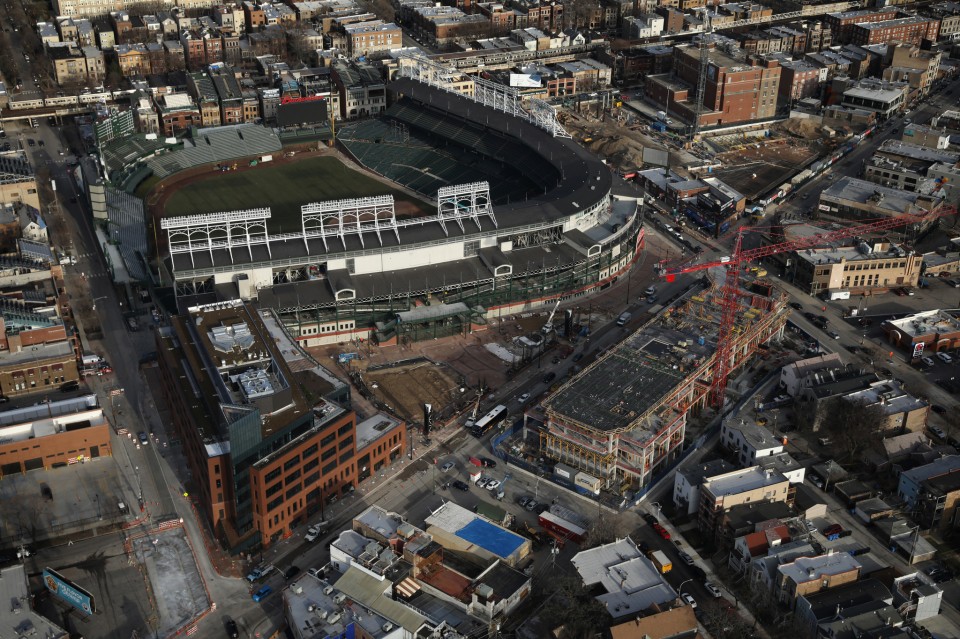
Sep 25, 2017
Tim Novak | Chicago Sun-Times| September 25, 2017
Welcome to Wrigleyville: Home of the world champion Cubs — and some of Chicago’s best deals on property taxes.
Take Casey Moran’s, one of the most popular bars in the booming neighborhood.
Two years ago, Cook County Assessor Joseph Berrios reclassified Casey Moran’s from commercial to residential property after its owner, Kevin Killerman, created a tiny apartment above the bar. That drastically cut Killerman’s property taxes by 60 percent, saving him more than $110,000 so far.
A block away, Berrios similarly has classified a two-story bar called Trace as residential property, even though a bartender there says there aren’t any apartments on the property. That’s saved its owners more than $17,000 in property taxes this year.
And the Ricketts family, owners of the Cubs and Wrigley Field, have saved hundreds of thousands of dollars in taxes on 10 apartment buildings known as Wrigley Rooftops. All are classified as residential property — even though their rooftop bleacher businesses generate far more revenue than their residences, records show.
Around Wrigley Field, bars and restaurants compete for customers. But when it comes to property taxes, they operate on an uneven playing field, a Chicago Sun-Times investigation has found.
Cook County is the only county in Illinois that taxes residences less than commercial property. That tax break is extended to thousands of buildings that include both businesses and apartments, resulting in lower tax bills for their owners — while forcing the rest of the county’s taxpayers to pay more.
CONTINUE READING
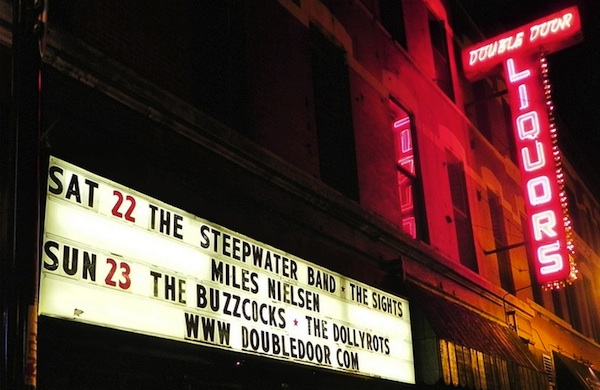
Sep 12, 2017
Fran Spielman | Chicago Sun-Times | September 11, 2017
The City Council’s Zoning Committee on Monday down-zoned the property that once housed the now-shuttered Double Door music venue in Wicker Park over the property owner’s strenuous objections.
Local Ald. Proco Joe Moreno (1st) used his iron-fisted control over zoning to muscle through a change that will strengthen his hand in determining the future of the property at 1572 N. Milwaukee.
“It’s a planning tool. We want the community to have a say. We don’t want anyone to lose money,” Moreno said after the vote.
“We don’t make zoning changes based on how much money people are going to make or lose. That’s for the market to decide — not me. What we want is a planning tool so we have a responsible business that contributes to the community. And I hope he makes a lot of money when he sells it.”
Moreno noted that the down-zoning approved Monday was not as drastic as the original version.
It would have gone from B3-2 to B1-1. Instead, it’ll be reduced to B2-2, giving the property owner a bit more leeway.
CONTINUE READING





